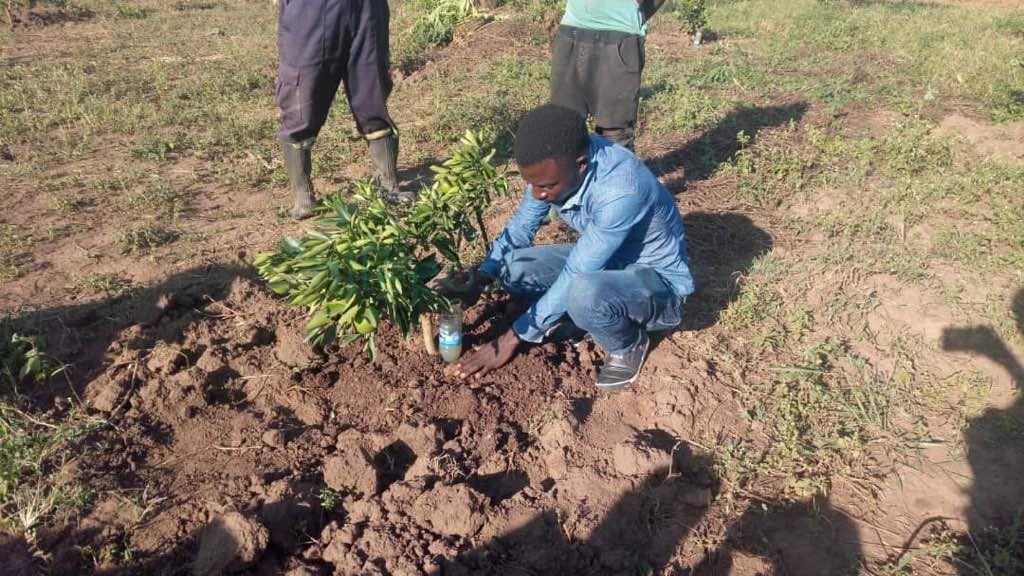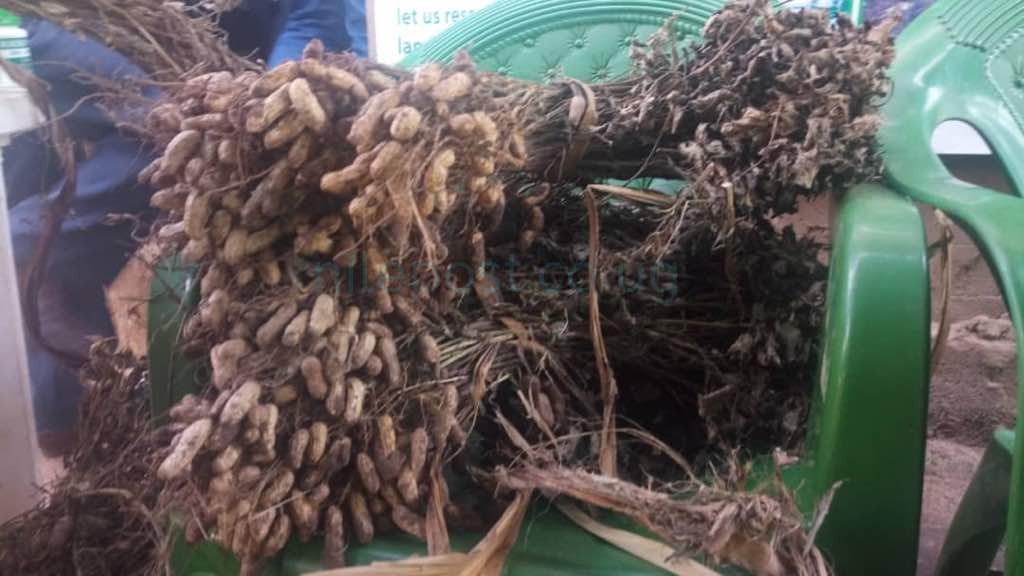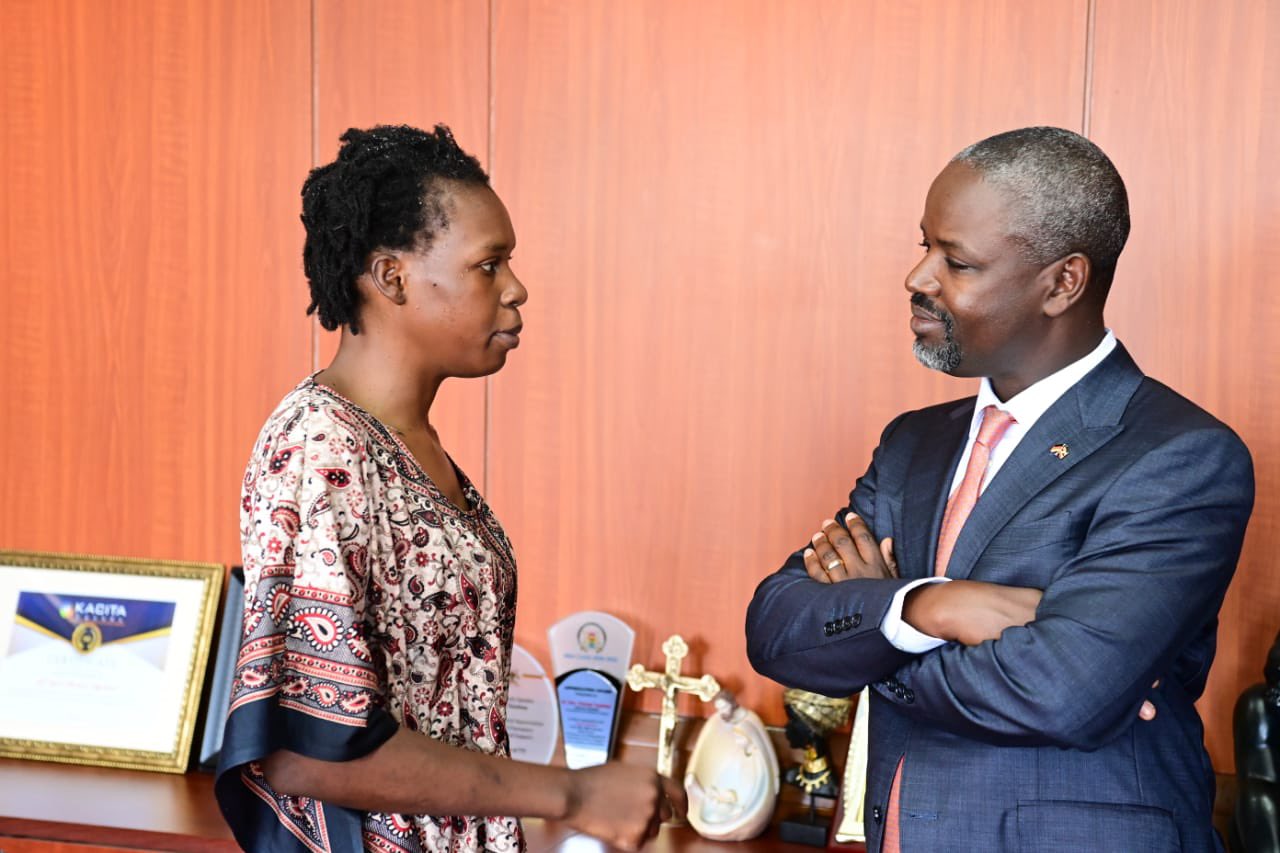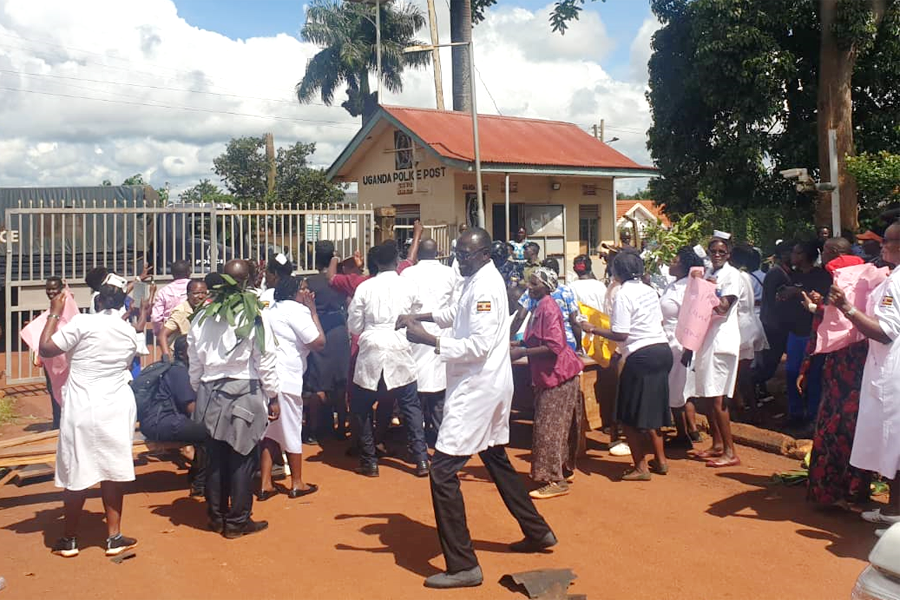Using Climate Smart Agriculture for Sutainable Land Management
Located 22km away from Mukono town is Bugereka village, found in Makukuba parish, Nabbaale Sub County. This is where you find 62 year old farmer, Mpaata George.
By the time we arrived at this village, Mpaata had a feast with the community members waiting to unveil the new technologies they have invented to continue with agriculture even at a time when the area is experiencing a dry season.
Keep Reading

“I am the senior trainer, sustainable land management, I work with the ministry of agriculture, climate smart agriculture,”Mpaata said.
Among the people he trains are children, women, men and the youth. On asking him why he decided to train the youth given the fact that many have been known to hate the practice of agriculture, Mpaata said, “I look forward to inspiring youths. We try to think of ways that can attract the young people into the agricultural industry like climate smart agriculture, with the practice, you can yield big with limited space and water.”
By climate smart agriculture, Mpaata means, an approach for transforming and reorienting agricultural developments under the new realities of climate change.
 Youth learning about smart farming
Youth learning about smart farming
I was quick to ask why the mechanism is employed. Mpaatasaid, “Long ago the weather was better and it was easy to predict both the dry and wet seasons, but today seasons have changed, it will rain at a time you expect a dry season, so in order not to be caught off guard, we find ways of sustaining land management by practicing climate smart agriculture,” When we approached Mpaata he was ready to open up to us. Mpaata is the senior trainer
Mpaata trains starting right from the young children to adults. 11 year old Nagadya Lydia is one of the beneficiaries of these trainings. At this age she was able to use the basin mechanism, where she planted half a kilogram of ground nuts and she reaped 18 kilograms after the harvest which helped in her education. The 11 year old says, “Agriculture is also for the peasants, we have knowledge but we have no way of spreading it, we therefore call upon government to be strict on conservation of natural resources.”
 Farming fruits
Farming fruits
By this time, we had not visited the gardens yet to expound more on what the basin, and other mechanisms work in climate smart agriculture. Therefore we later head to see what is on ground.
At this time, 28 year old, Nsubuga Hudson Mr. Mpaata’s trainee, led us to his garden. Nsubuga decided to grow oranges and bananas. When we reached his garden, there were small plastic bottles filled with water pushed into the soil just next to the orange trees. He calls this bottle irrigation, one of the climate smart agriculture mechanisms. He says these bottles will supply water to the plant at deeper levels even at the time when the seasons are dry.
“The water bottle has holes that allow it supply water to the plant. And this can sustain the plant for three days,” Nsubuga says
Nsubuga adds, they work in groups. “We are 65 members, others do piggery.
Nsubuga employs grafting method as well “so that they can easily put on fruits. The oranges were planted last year in March but now they have fruits already”
Nsubuga says, the bottle irrigation method is cheap and it can be used by any farmer regardless of your income status, he however notes that it is a tiresome practice.
Nsubuga notes that there are a number of agricultural products they manufacture, like pesticides but many do not have market, something that affects their produce.
As young people, he notes that some of the leaders in the area are not supportive hence draining their energies.
From this point, 48 year old Justine Nabukenya leads us to her garden where she uses the basin method to plant crops. “First I ensure that I have dug the ridges in place that will control soil erosion, then I can now dig my basins, “she says.
Nabukenya digs basin like structures that are 15cm deep. “I then cover the hole. I fix around six ground nut seeds in the hole I have dug. When it rains, the basin will hold water and to deeper levels so that when the dry season sets in my basin has enough water to support the growth of the seed compared to the normal way of planting the seeds.
She therefore calls upon women to embrace agriculture and the climate smart ways instead of seating at home.


















